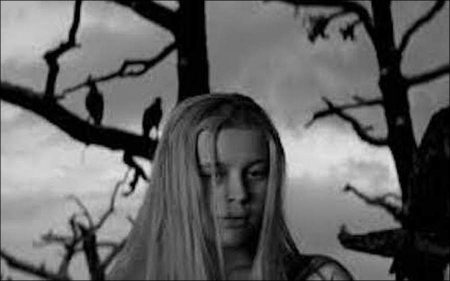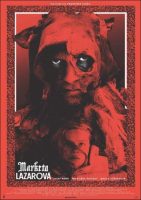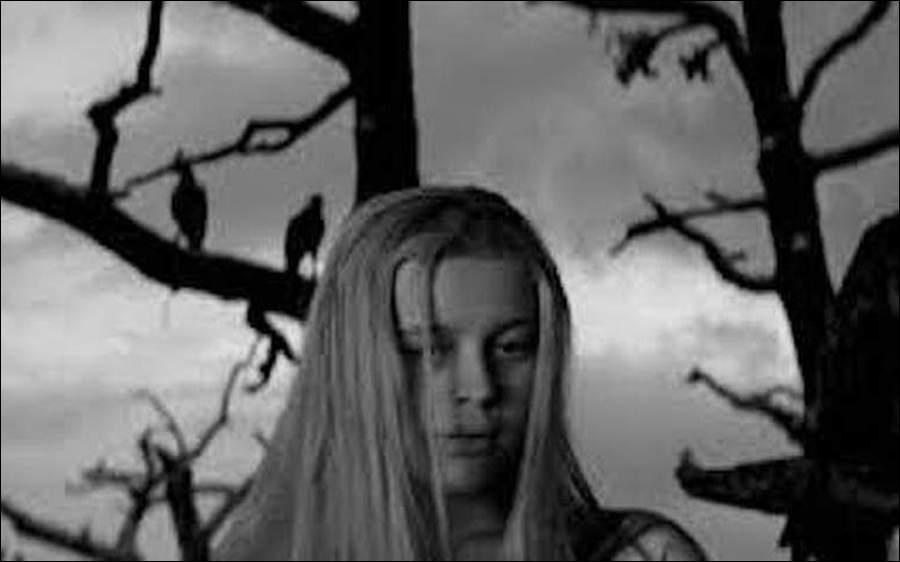Marketa Lazarova movie storyline. When the Czech New Wave movement opened doors for artists to get as creative as possible, it’s strange that František Vláčil took a bit of a step back to see what he could do. Marketa Lazarová is almost courageous in how much it relies on itself and not the wave itself.
Still, despite having roots in the Czech cinema of old, Marketa Lazarová is artistic enough to stand out amongst the Czech films of the time, If anything, it feels all the more damned: it’s tethered in foundation, and aesthetically expressive. For this dark ages transition from paganism to christianity, that means a hell of a lot thematically; having both constraint and rebellion is exactly what this kind of tale calls for. In scope, length, vision, and its core, Marketa Lazarová is an epic, and one of the most riveting medieval films imaginable.
Mikolás and his brother Adam rob travelers for their tyrannical father Kozlík. During one of their “jobs” they end up with a young German hostage whose father escapes to return news of the kidnapping and robbery to the King. Kozlik prepares for the wrath of the King, and sends Mikolás to pressure his neighbor Lazar to join him in war.
Persuasion fails, and in vengeance Mikolás abducts Lazar’s daughter Marketa, just as she was about to join a convent. The King, meantime, dispatches an army and the religious Lazar will be called upon to join hands against Kozlik. Stripped-down, surreal, and relentlessly grimy account of the shift from Paganism to Christianity.
Marketa Lazarová is a 1967 Czechoslovak epic period drama[5] directed by František Vláčil. It is an adaptation of the novel Marketa Lazarová (1931) by Vladislav Vančura. The film takes place in the middle of 13th century, and tells the story of a daughter of a feudal lord who is kidnapped by neighbouring robber knights and becomes a mistress of one of them.
Marketa Lazarová was voted the all-time best Czech movie in a 1998 poll of Czech film critics and publicists. It stars Josef Kemr, František Velecky. Ivan Palúch, Pavla Polášková, Michal Kožuch, Magda Vášáryová, Harry Studt, Vlastimil Harapes, Zdeněk Kryzánek, Zdeněk Řehoř and Naďa Hejná. Theodor Pištěk designed the costumes for the film.
Themes
The film is set in medieval Bohemia at a time when Christianity had not fully replaced Paganism. Conflict between Christianity and Paganism, mirroring a conflict between the clans and central authority, is a major theme. The Kozlík clan leans toward Paganism while the royal regiment represent Christianity and authority. Meanwhile, Lazar’s clan is nominally Christian but politically neutral. Kozlík wants Lazar to support him in the fight but Lazar refuses and sides with the king, leading to the abduction of his daughter.
Similarly, the romance between Markéta and Mikoláš, who rapes her but later protects and loves her, represents a meeting of purity and innocence with worldly violence. The film highlights Mikoláš’s ferocity and unrestrainment. This interplays with the romance between Mikoláš’s sister Alexandra and Kristián, in which the roles are reversed. Kristián’s love for Alexandra contradicts Mikoláš’s love for Marketa; he is uncertain in it due to his loyalty to his father.
Royal scenes that were cut from the film were supposed to show contradictions between the Kozlík clan and the royal family. Their difference was to be shown in a struggle for property and power. Desire for the crown leads to hatred between brothers and of sons towards their father, common in big royal families but not in small families. The film also shows conflict between Mikoláš and Adam. Neither is the oldest son but they are both likely candidates to replace Kozlík as clan leader.
Marketa Lazarova (1967)
Directed by: František Vláčil
Starring: Josef Kemr, František Velecky. Ivan Palúch, Pavla Polášková, Michal Kožuch, Magda Vášáryová, Harry Studt, Vlastimil Harapes, Zdeněk Kryzánek, Zdeněk Řehoř, Naďa Hejná
Screenplay by: František Pavlíček, František Vláčil
Cinematography by: Beda Batka
Film Editing by: Miroslav Hájek
Costume Design by: Ondrej Brezovský, Theodor Pistek
Set Decoration by: Stanislav Pavlik, Josef Pavlík, Ladislav Rada, Vladislav Rada
Art Direction by: Oldrich Okác
Music by: Zdeněk Liška
MPAA Rating: None.
Distributed by: Ústřední půjčovna filmů
Release Date: October 6, 1967 (Czechoslovakia), August 30, 1974 (United States)
Views: 121



